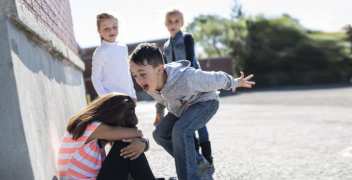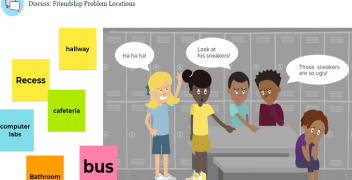Relational Aggression
All types of bullying continue to be a problem in US schools and beyond, and it's important to remember that not all bullying is physical or verbal. Relational (or social) aggression is prevalent as well, and it includes non-physical behaviors that damage someone’s relationships or social standing within their peer group. Relationally aggressive behaviors include social exclusion, starting or spreading a rumor, giving a peer "the silent treatment," or threatening to stop being friends with someone if they don’t act a certain way. Much cyberbullying is relational bullying; for example, social media posts, texts or online messages can be used to harm the victim's social status or relationships. It is also important to note that relationally aggressive behaviors can quickly lead to in-person aggression and violence underscoring the need for school staff to detect and intervene in relational aggression. This can be challenging, however, because many instances of relational aggression are carried out covertly and quietly.
While some aggressive children are disliked, a good portion of relational aggressors are socially influential and popular. They may use relational aggression as a way to achieve higher status in their peer group (e.g., starting a rumor about a peer in order to protect their own place in the peer group). Because tweens and teens may accept relational aggression as a normal part of their interactions with friends and peers, it is important that parents and teachers convey how unacceptable it is to hurt others in this way. Relational aggression can cause anxiety, depression, and physical symptoms for youth who are targeted, just as ongoing physical or verbal aggression does, and it should be called out and addressed when it comes to light.
When girls choose to be aggressive, they are more likely to engage in relational aggression and research has shown that they experience greater emotional impact from being the victim of relational aggression when compared to boys. This likely stems from the way that girls value close-knit friendships and use these relationships to harm each other. In addition, girls sometimes assess their own worth based mainly on their social relationships, whereas boys tend to measure their worth by multiple factors, such as athletics, as well as social relationships. When the relational aggression occurs via electronic media, it can be harmful regardless of gender. It is important to remember that relational aggression is not just a girls' problem, all children can use and experience these behaviors.
There are steps that parents, educators, and youth themselves can take to combat relational aggression. Read more in this CHOP fact sheet.










